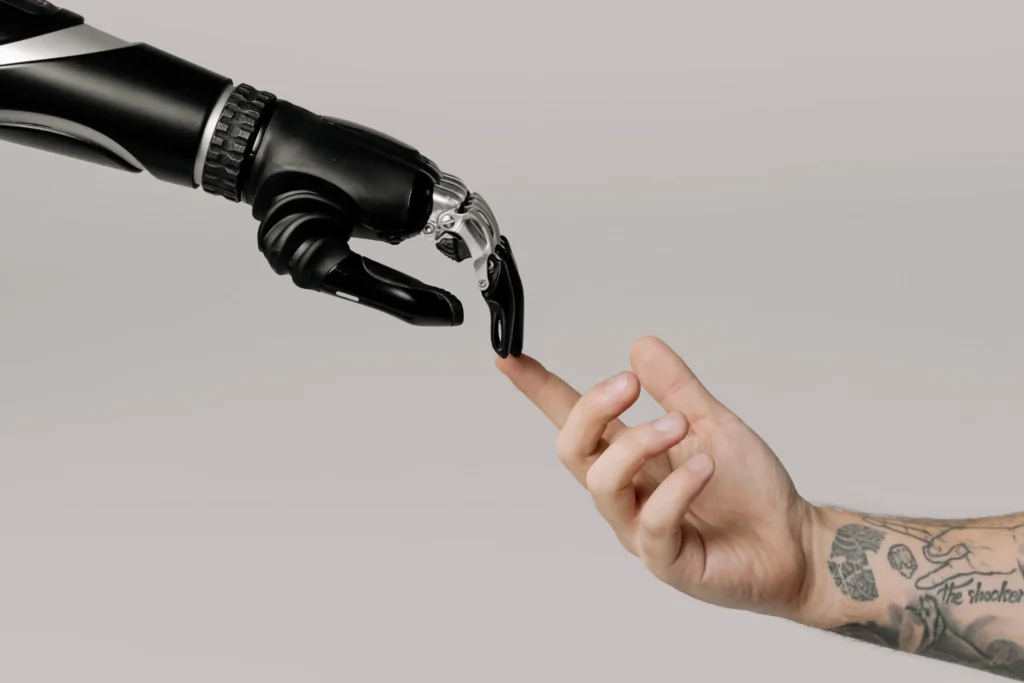|
Getting your Trinity Audio player ready...
|

10 Uses of AI in Everyday Life
AI has created so many amazing advancements in the last few years that it’s easy to overlook that AI is already impacting the world.
This year saw some amazing advancements in the application of AI. A computer-generated image created by AI has been awarded an art award in a contest against humans.
The reality is artificial intelligence is everywhere around us.
It’s used to identify cancers, fight the poaching of endangered elephants, and find archeological sites from space. However, AI isn’t confined to the boundaries of science. Artificial Intelligence is everywhere.
You likely make use of AI in your everyday routine, too.
“AI technologies are penetrating nearly every aspect of our lives, almost imperceptibly,” said a Senior Member. “It powers our devices while continuously improving by analysing data we produce on those devices.”
COMMON USES INCLUDE:
Voice Assistants: The voice assistants on your phone or your smart home gadget are supported by AI. Sometimes, requests are handled on the phone. Occasionally, the recommendations are transferred to a cloud server to process.
Smart Home Devices With Artificial Intelligence smart thermostats, smart thermostats can automatically alter your home’s HVAC system. Cameras can warn consumers of individual vehicles, people or packages.
eCommerce AI has become ubiquitous in the world of online shopping. The most popular applications include suggestions for products, chatbots that help manage returns and sales, and personalised shopping experiences.
Trend Recognition in Retail: Online retailers provide more than just recommendations when you shop. They’re actively utilising data about what’s on sale – within their stores and with their competitors – to determine trends. They’re able to employ AI to develop and manufacture to ensure that the next great product is at the point that the public is ready for it.
Content Recommendations: AI-powered recommendation engines have been trained with catalogues of products and data from consumers to give more targeted recommendations.
Navigation and travel: paper maps are gone. AI-generated directions can optimise the time spent travelling and fuel consumption.
Drug Discovery by determining their risky potential and the mechanisms that cause them, AI systems are finding new applications for medication. This technology has helped to create a variety of platforms for drug discovery that permit companies to reuse existing medicines and bioactive substances.
Shop Now
- Face Recognition for unlocking phones: When you glance at your phone, it will unlock. These features are supported by an artificial intelligence system that uses cameras and sensor technologies to detect your facial expressions.
- Financial Fraud Detection AI is exceptionally adept in pattern analysis, and most of us regularly utilise credit card transactions. It is, therefore, well-suited to determine the types of transactions that could be fraudulent. If you’ve ever received an email from your bank to inquire whether you’d made a purchase that was not authorised, it’s probably due to AI.
- Automated correction: AI software uses machine learning, deep learning, and natural language processing to detect incorrect usage of words in text processors, word processing apps, and other media that use text and offer suggestions for corrections.
In the near future, most of the AI systems efforts will focus on creating bigger and less biassed datasets on which to build models.
“The training of these systems is critically dependent on the data the AI model is trained on,” said by Acknowledged Individual. “The more scenarios it can go through, the better it can be. However, this requires carefully planned, annotated datasets. They should be diverse to avoid bias and constantly change to reflect the changing environment and scenarios that are triggered in real-world scenarios.”
It also warned against relying too much on AI systems in specific circumstances that can alter your life.
“AI needs to be explainable,” Panetta explained. “For instance, numerous companies sell products that assess the performance of employees and decide on the amount of compensation. However, the decisions coming from these systems can’t be explained to explain why the AI came to that conclusion. AI shouldn’t affect someone’s life or livelihood.”
Despite the increasing popularity of AI, it has plenty of room to improve and grow.
Learn more about Artificial Intelligence: Artificial intelligence is everywhere, which means that the creators of AI systems have to consider the effect it can have on its users.



